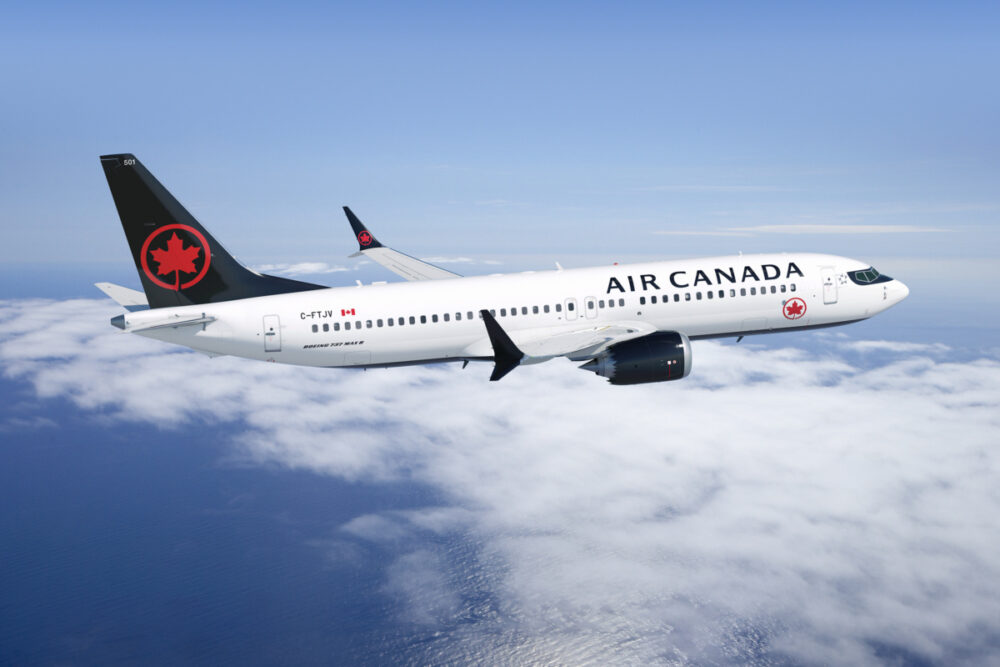Air Canada has sold nine of its Boeing 737 MAX aircraft to two aircraft leasing firms. The aircraft will remain flying with Air Canada, but the airline will be liable for lease payments to the respective owners moving forwards.

Airlines around the world are facing a severe crisis. However, Boeing 737 MAX operators are facing two. The Boeing 737 MAX has been grounded for over a year and a half. This means that existing operators have been unable to fly their aircraft. Meanwhile, new operators such as Ryanair have been left without an expected rise in capacity (although that passenger capacity is not currently needed).
Air Canada’s aircraft sale
Air Canada today revealed that it had completed the sale of nine of its Boeing 737 MAX 8 aircraft. The airline sold the aircraft to two leasing companies for a total of US$365 million. As a result, the airline now has commitments for long-term lease payments of $345 million.
Stay informed: Sign up for our daily aviation news digest.
As mentioned, two lessors have bought the nine aircraft between them. Jackson Square Aviation has purchased three of the grounded aircraft. Avolon Aerospace Leasing Limited has purchased the remaining six. Avolon canceled commitments for 75 Boeing 737 MAX aircraft in April. This was followed by the cancelation of 27 further commitments in July.

Michael Rousseau, Deputy Chief Executive Officer and Chief Financial Officer of Air Canada, commented,
“Since the start of the COVID-19 crisis, Air Canada has accessed financial markets numerous times and has successfully raised almost $6.0 billion in liquidity, on reasonable terms and conditions, including with this transaction, as it continues to maintain liquidity levels to mitigate the challenges and uncertainty ahead.”
What’s the latest with the Boeing 737 MAX?
The Boeing 737 MAX has now been grounded for over a year and a half. However, work is currently underway to return the aircraft to service. In the past few months, representatives from three different aviation authorities have completed test flights of the aircraft. First was the United States’ Federal Aviation Authority, then it was Transport Canada before the European Union Aviation Safety Agency took the aircraft for a spin last.
Following these test flights, the Joint Operations Evaluation board, consisting of the authorities as mentioned above and the aviation authority of Brazil, met to discuss the findings. Their report was released earlier this week.

Several vital milestones concerning returning the aircraft to service remain. Firstly, the FAA will review Boeing’s final design documentation to ensure compliance with FAA regulations. Next, the FAA will issue a continued airworthiness notification to the international community and then an airworthiness directive.
The FAA will then retract its grounding order. This will mark the official ungrounding of the aircraft pending completion of any work mentioned in the airworthiness directive. All of the new Boeing 737 MAX aircraft produced since the grounding will have their airworthiness certificates issued by FAA personal. Finally, the FAA will review and approve training requirements.
What do you make of Air Canada’s sale? Let us know your thoughts in the comments!
[ad_2]
Source link


